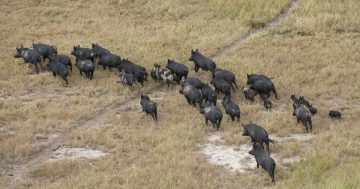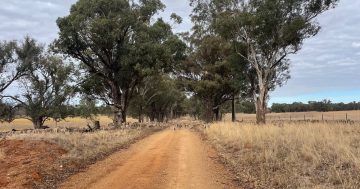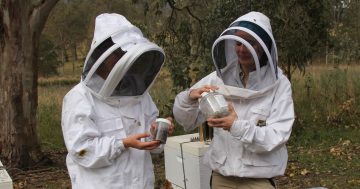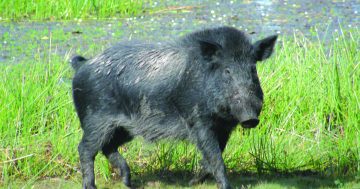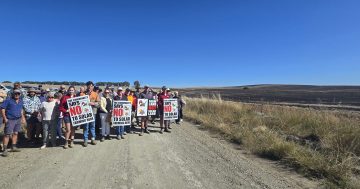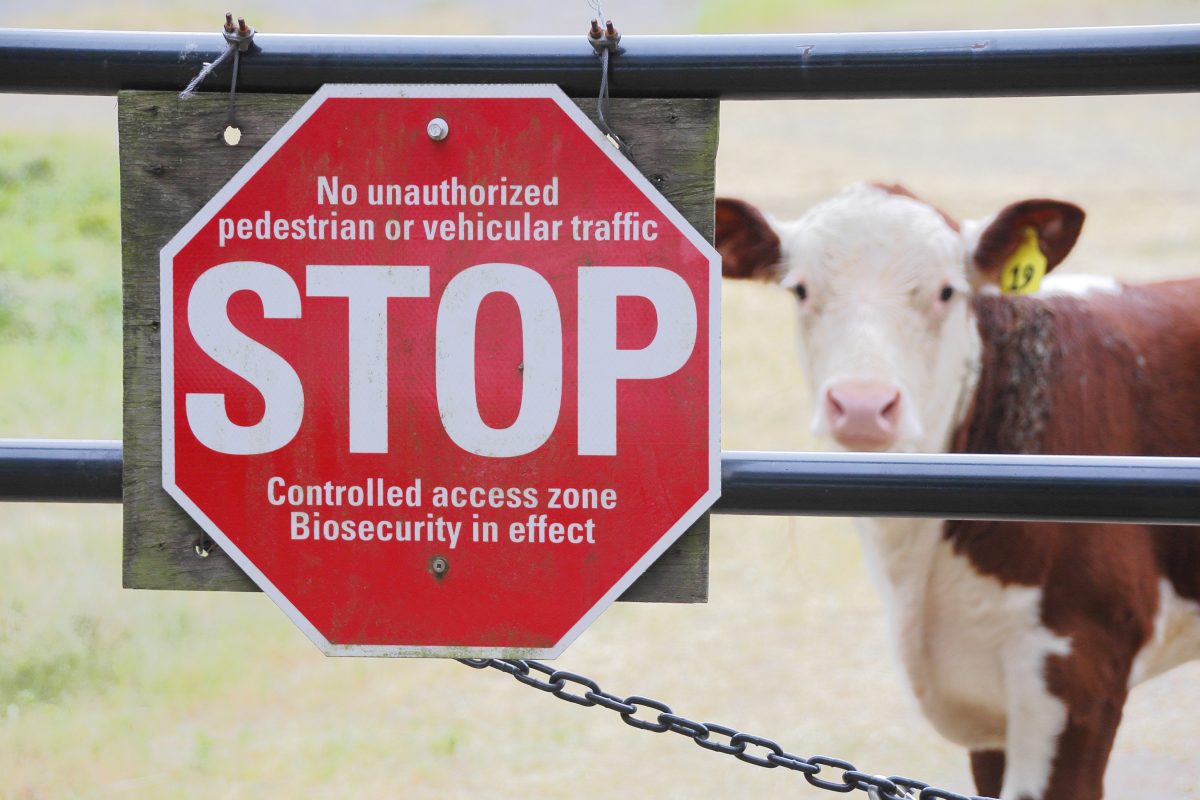
Experts warn that localised biosecurity measures on farms should be strictly enforced. Photo: Modfos.
The current foot and mouth disease (FMD) threat has been at the forefront of people’s minds at the NSW Farmers annual conference, according to Wagga district branch chairman Alan Brown.
“Farmers are very, very, very concerned,” he said.
“We only need one incursion and all of our livestock industries will basically stop for 12 months, so it’s a $60 to $80 billion issue.”
The recent outbreak in Indonesia of the highly-infectious virus, which affects cattle, sheep, goats and pigs, poses a very real threat.
A case on Australian soil would see export markets immediately close and livestock destroyed – and the impact would be felt well beyond the farm gate.
“Obviously farmers will be directly and disastrously affected, but so will all the service industries that work for farmers,” Mr Brown explained.
“I don’t think there’s enough emphasis placed on the gravity of the issue when it’s right on our doorstep at an important tourist location.
“The government’s got a real problem prioritising whether to allow tourists to go into that area or more towards preserving our vital industry.”
With more than 100 flights to and from Bali each week, NSW Farmer’s outgoing president James Jackson recently labelled the Commonwealth’s biosecurity response as “wishy-washy”.
He expressed frustration over the reluctance to introduce simple measures like foot baths for return travellers.
“A little inconvenience at the airport to prevent such a huge threat to our economy and our farming sector is entirely sensible, and it’s important people realise the gravity of the situation,” he said.
“We cannot rely on treatment alone with FMD – prevention is the only way to keep us safe.”
Mr Brown agreed, saying there was too much onus placed on the honesty of individual travellers.
“[There are] a lot of the biosecurity requirements about asking where they’ve been and what they’ve been in contact with,” he said.
“And that’s a real problem if people are not prepared to be honest about it.”
Marta Hernandez-Jover is a Veterinary Epidemiology and Public Health professor at Charles Sturt University in Wagga.
She said the virus could sometimes live outside the animal for more than two months.
“If you’ve got dirt in your boots and the leather for example, and you’ve been across an infected property, that dirt could actually have the virus for weeks so that’s a very significant risk,” she explained.
“The first step is making sure it doesn’t get through the border, but there are just so many ways this virus can get in, so we really need to be prepared here as well.”
Dr Hernandez-Jover said in the most likely case of an incursion, the person would not come into contact with livestock and the virus would die. However, she warned that our ability to control an outbreak would depend on early detection.
“It’s making sure those at the front line working with animals know how to identify it,” she said.
“If there is something unusual, the sooner they pick up the phone and call the right person, the earlier we’re going to implement the official response and minimise this threat and then the impact.”
She warned that feral animals, particularly pigs, posed a real threat and said localised biosecurity plans were essential.
“We need to have very strict visitor biosecurity, making sure that we know who comes into our farms and where they have been,” she explained.
Mr Brown added that the potential ramifications of an outbreak were lasting.
“I was speaking to a Scottish consultant who went through the last major outbreak in the UK in 2001 and he said that the ripples from that are still going on,” he said.
“There’s a real possibility that we will not be able to control an outbreak, so the easiest way to handle this situation is not getting it in the country in the first place.”
The NSW Farmers annual conference is underway at Luna Park until 21 July and will include the election of a new leadership team.







